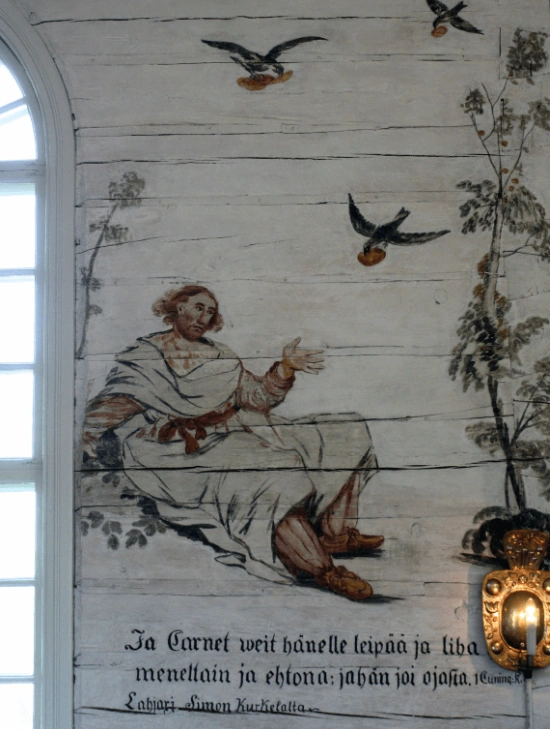553. And upon their heads as it were crowns like gold, signifies that they seem to themselves, when they reason, as if they were wise and victorious. This is evident from the signification of "head" as being wisdom and intelligence (of which presently); and from the signification of "a crown of gold," as being a reward of victory (of which above, n. 358. "A crown like gold," signifies the reward of victory, because kings in ancient times, when they were in combats with their enemies wore crowns of gold upon their heads, besides various insignia that then belonged to kings. This was because kings represented the Lord in relation to Divine truth, and Divine truth combats from Divine good; so this was represented by "a crown of gold," and wisdom and intelligence itself by the head upon which was the crown. This is why the martyrs had crowns, for they fought from Divine truth against the falsities from evil that are from hell, and came off victors, because they fought even unto death, which they did not fear. From this it can be seen that "upon their heads as it were crowns like gold" signifies that those who are sensual men seem to themselves, from the persuasion of the falsity in which they are, to be wise and victorious.
[2] As the locusts are described in respect to their heads, their faces, their breasts upon which were breast plates, and as to their tails, and hair, and teeth, it is important to know what their heads signify, and afterwards what the other things signify. The "head" signifies in the Word wisdom and intelligence, because these have their seat in the head; but when those who are in no wisdom or intelligence because they are in falsities from evil are treated of, the "head" signifies folly and insanity, because falsities and evils are therein and therefrom. So here, where those who are sensual and in the persuasion of falsity are treated of, the "head" properly signifies folly and insanity, for such see falsities as truths and evils as goods, for they constantly see what they see from fallacies. Of such, therefore, it is said that "upon their heads were as it were crowns like gold, and their faces as men's faces," and other things follow, all of which were appearances from the fantasy with them, therefore it is said "as it were" crowns, and "like" gold, which shows that these appearances were not real but fallacious. For in the heavens all appearances that exist are real, because they are correspondences; for the interiors belonging to the affections and thoughts therefrom of the angels, when they pass to the sight of their eyes, are clothed in such forms as are manifest in the heavens; they are called appearances because they are visible, and they are said to be correspondences and are real because they spring from creation. But it is otherwise with the appearances in some of the hells, where those are who are in the persuasions of falsity from evil; from these persuasions fantastic visions spring, in which there is inwardly nothing real, and for this reason they also vanish if a single ray from the light of heaven flows in. Such are the appearances that are here described in reference to the "locusts." (But of appearances in the spiritual world, both those that are real and those that are not real, see in the work on Heaven and Hell 170-176; and above, in the explanation, n. 369, 395)







